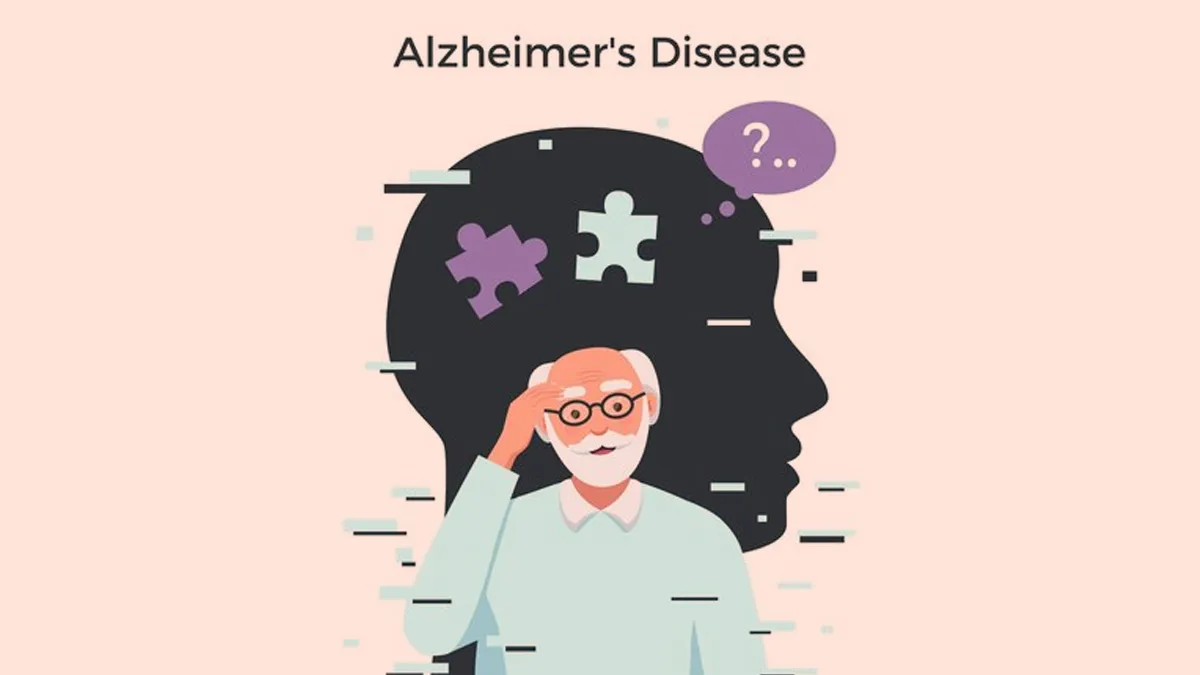
Loneliness has emerged as a significant risk factor, increasing the likelihood of developing dementia by over 30%, irrespective of age or gender, according to a comprehensive review of 21 long-term studies involving more than 600,000 participants globally.
The feeling of loneliness, characterised by dissatisfaction with one's social connections, has also been associated with early signs of dementia, such as cognitive decline or impairment. Both loneliness and dementia affect critical functions like decision-making, memory, and thought processes. However, dementia's symptoms are more severe, often disrupting daily life.
To explore this connection further, we consulted Dr Gorav Gupta, Senior Psychiatrist and Founder of Tulasi Healthcare, New Delhi, and Dr Arvind Otta, Senior Psychologist and Mental Health Activist, who shared their expert insights on the matter.
Loneliness is a multifaceted emotion that significantly influences mental well-being and cognitive performance. According to the National Library of Medicine, studies demonstrate a strong link between loneliness, social isolation, and reduced cognitive function in older adults across various cognitive domains, alongside an increased risk of dementia. Dr Arvind Otta sheds light on how loneliness impacts mental health and cognitive function.
Dr Otta told us that loneliness raises the likelihood of depression, anxiety, and other psychological challenges. Individuals experiencing loneliness often grapple with heightened emotional distress, sadness, and a heightened sensitivity to rejection, which perpetuates their isolation and mental health struggles.
The unexpected grief and pain caused by loneliness can trap individuals in a cycle of isolation and sadness. Dr Otta said, “This emotional turmoil often exacerbates symptoms of anxiety and depression, leading to physical manifestations such as insomnia and chronic fatigue.”
High levels of loneliness correlate with reduced cognitive abilities in memory, attention, and executive functioning tasks. Structural brain changes, including a decreased volume in regions responsible for these functions, may underlie this relationship.

Loneliness and cognitive decline share a two-way relationship. While loneliness can diminish cognitive abilities, cognitive impairments may also intensify loneliness by hindering social interactions, creating a vicious cycle.
Loneliness is linked to structural changes in the brain, such as progressive loss of frontal white matter volume observed in dementia and other cognitive deficits. These changes profoundly affect brain function and structure over time.
Don't Miss: How Are Depression And Menstrual Pain Correlated? Doctor Weighs In
Dr Gorav Gupta explains that loneliness significantly affects both the body and brain by triggering chronic stress, which raises cortisol levels and weakens the immune system. In the brain, loneliness alters regions responsible for memory, decision-making, and social behaviour. Over time, it can shrink these areas, impairing cognitive function and contributing to dementia. This creates a damaging cycle of physical and mental health challenges that compromise overall well-being.
Loneliness is closely tied to dementia through several biological mechanisms:
Feeling lonely keeps the body in a prolonged "stress mode," leading to elevated cortisol levels. Over time, excessive cortisol damages the hippocampus, the brain region vital for memory and learning, increasing dementia risk.
Loneliness-induced inflammation damages brain cells and fosters the buildup of harmful substances like plaques and tangles, key markers of Alzheimer’s disease.
Loneliness heightens the production of free radicals, harmful chemicals that damage brain cells and accelerate brain ageing.
Loneliness often disrupts sleep, particularly deep sleep, when the brain clears toxins and waste. Poor sleep hinders this essential cleaning process, increasing the risk of dementia.
Chronic loneliness reduces brain growth factors, crucial for maintaining neuroplasticity and repair. This hampers the brain's ability to recover from ageing or injury.

Loneliness can raise blood pressure and negatively impact heart health, limiting the supply of oxygen and nutrients to the brain. This poor circulation can lead to memory issues and elevate dementia risk.
Dr Otta emphasises that identifying the early signs of loneliness can play a crucial role in preventing cognitive decline and its associated risks. Here are some key indicators to watch for:
A noticeable reduction in social interactions or a growing preference for solitude may indicate the onset of loneliness. Individuals might avoid gatherings, withdraw from relationships, or feel indifferent toward maintaining social connections.
Persistent feelings of sadness or hopelessness about social interactions are often linked to loneliness. Neutral social cues may be misinterpreted as rejection or a lack of appreciation, intensifying the sense of disconnection.
Loneliness can impact cognitive abilities, leading to difficulties with concentration, memory lapses, or forgetfulness about certain events. These signs often emerge during conversations or tasks requiring mental focus.
Emotional distress caused by loneliness often manifests physically. Symptoms may include fatigue, disrupted sleep, and changes in appetite. These physical effects are closely tied to the emotional weight of loneliness.
Heightened feelings of anxiety or depression frequently accompany loneliness. These warning signs highlight the need for timely intervention, as unresolved emotional struggles can escalate and contribute to severe outcomes, including cognitive decline or dementia.
Identifying these early symptoms is vital for addressing loneliness effectively. Early recognition and intervention can help individuals manage their emotional well-being, maintain cognitive health, and reduce the risk of dementia over time.
Keep reading Herzindagi for more such stories.
Credits: Freepik
Also watch this video
Herzindagi video
Our aim is to provide accurate, safe and expert verified information through our articles and social media handles. The remedies, advice and tips mentioned here are for general information only. Please consult your expert before trying any kind of health, beauty, life hacks or astrology related tips. For any feedback or complaint, contact us at [email protected].